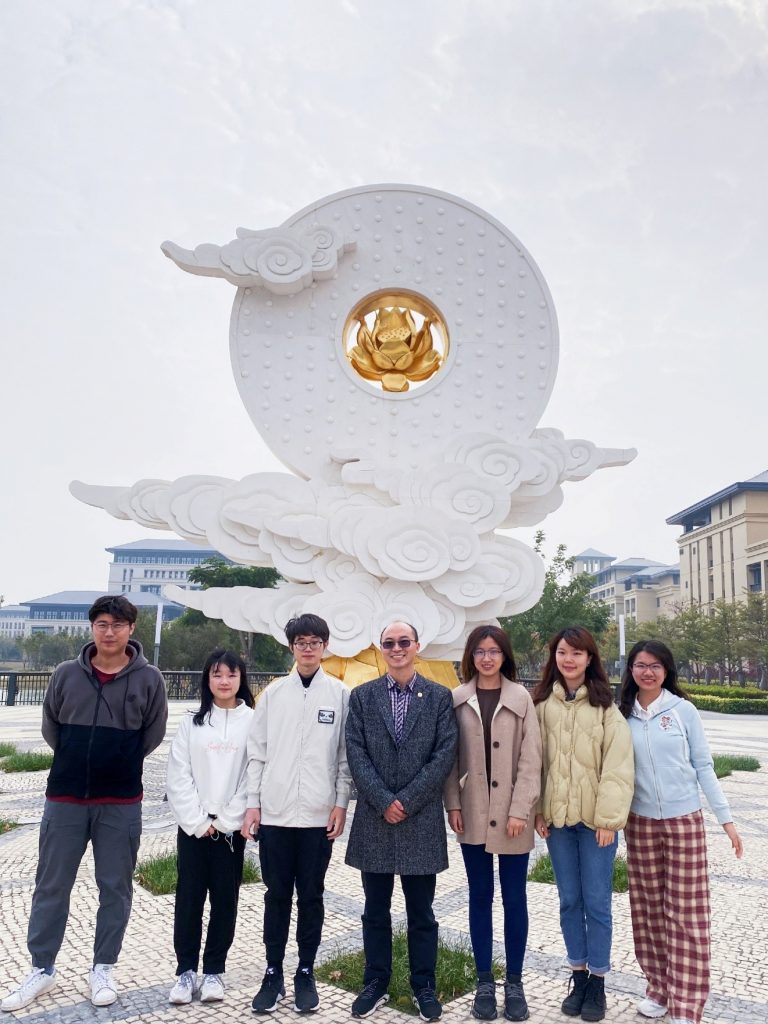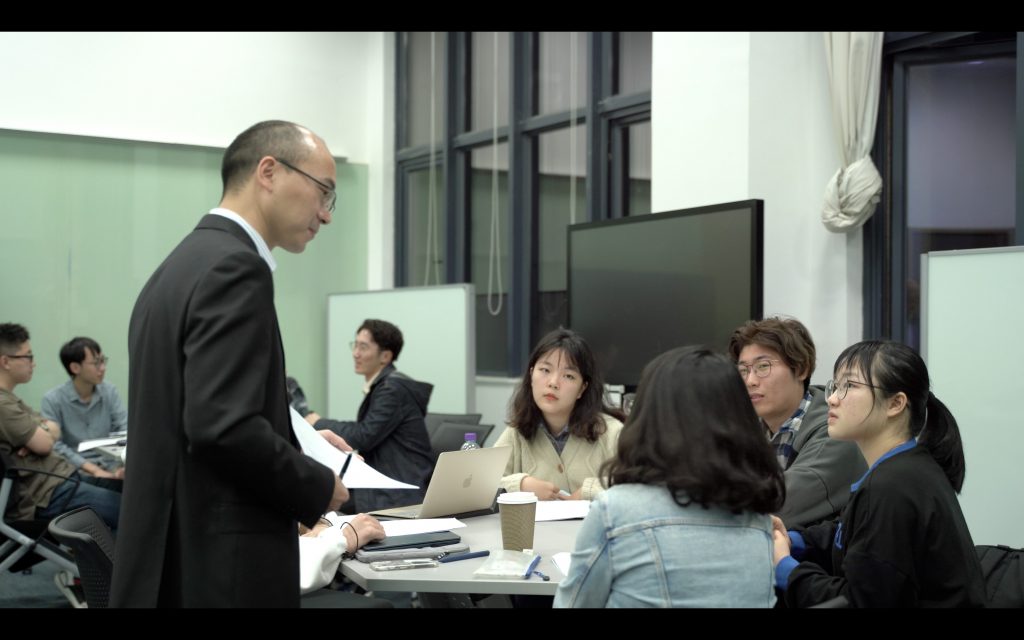Six undergraduate students in the Department of Sociology, Faculty of Social Sciences, University of Macau (UM), led by the department head Prof Xu Jianhua, recently conducted a study on the stigmatisation, discrimination, and hate crimes against various population groups in Chinese-speaking communities during the COVID-19 pandemic. The study has been published in Asian Journal of Criminology, a journal indexed in the Social Sciences Citation Index (SSCI).
The study is derived from a postgraduate course taught by Prof Xu titled ‘Qualitative Research Methods in Criminology and Criminal Justice’. The six students, namely Sun Guyu, Cao Wei, Fan Wenyuan, Pan Zhihao, Yao Zhaoyu, and Li Han, sat in on the class and were required to read literature on cutting-edge criminology and qualitative research methods on a weekly basis. Through analysing the data, adjusting the framework, and clarifying the logic, the students distilled the original group project into a first draft of the research article, and after repeated revisions, turned it into a publishable version.
Looking back on this valuable research experience, the six students say that the training has enhanced their understanding of academic research, the methodology involved, and the academic requirements for scholars. They also learned the importance of teamwork and achieved personal growth in the process. According to Pan Zhihao, for undergraduate students who aim to acquire experience in social science research, the best way is to treat every term paper and project seriously, because only by working hard can one find valuable research topics and opportunities to work with professors, which will help them learn what they cannot learn in the classroom.
Titled ‘Stigma, Discrimination, and Hate Crimes in Chinese-Speaking World amid Covid-19 Pandemic’, the study was conducted through collecting data from online interviews and observations, as well as media data mining, in order to investigate changes in stigmatised groups and the types of stigma from the end of 2019, when the outbreak first began, to early April 2020, when China largely contained the first wave of COVID-19 within its border.
During the early stages of the pandemic, there were mainly acts of stigmatisation by non-Hubei Chinese people against residents of Wuhan and other cities of Hubei province, by Hong Kong and Taiwan residents against mainland residents, as well as those by Western societies against overseas Chinese. With the epidemic gradually coming under control within China and the development of the pandemic outside the country, African people in China also became the target of stigmatisation. The researchers studied various factors, such as the fear of getting infected, food culture, mask culture, political ideology, and racism, and how they influenced the stigmatisation of different victim groups. This study not only helps us understand stigmatisation in the Chinese-speaking communities during the COVID-19, but also shows the impact of different sociopolitical factors on the generation of hate crimes.
Asian Journal of Criminology aims to promote international studies on criminology and criminal justice in Asia through publishing high-quality research articles. It advocates empirical studies on theories and policies and the use of cutting-edge methodology in evidence-based studies on criminal justice practice and public policies. The journal features comprehensive, multidisciplinary, and comparative research studies on criminology and criminal justice in Asia.
澳門大學社會科學學院社會學系6名本科生在該系系主任徐建華帶領下,分析了新冠肺炎疫情在華語世界掀起的針對不同群體的污名化、歧視與仇恨犯罪現象。研究成果獲SSCI期刊《亞洲犯罪學期刊》(Asian Journal of Criminology)刊登。
該項研究緣起於徐建華教授的一門名為“犯罪學定性研究方法”的研究生課程。6名本科生孫顧宇、曹薇、范文淵、潘志豪、姚昭宇和李涵以旁聽的方式參與課堂,每週按要求閱讀大量犯罪學與定性研究方法的前沿文獻,透過整理數據、確認框架、梳理邏輯,將原本粗糙的小組課題提煉為一篇論文初稿,經過反復修改成為可發表的論文。
回憶起這段獨特的研究經歷,學生均認為在實踐中增進了對學術研究過程與方法的理解,並對學術的要求有了深刻的體悟。另一方面,他們感受到小組合作的重要性,也在不斷的磨煉中自我成長。潘志豪認為,本科生參與社科研究最好的方式就是以研究者的態度去認真對待遇到的每一份作業,因為只有自己下足了功夫,才能挖掘出有價值的研究課題,從而得到和教授深入合作的機會,並在過程中學習到很多課堂上學習不到的知識。
師生以《新冠肺炎疫情期間華語世界的污名化、歧視與仇恨犯罪》(Stigma, Discrimination, and Hate Crimes in Chinese-Speaking World amid Covid-19 Pandemic)為題進行研究,他們通過在線訪談、在線觀察、媒體數據挖掘等方法收集數據,調查了從2019年末疫情爆發到2020年4月初中國境內疫情得到基本遏制期間,被污名化群體和污名種類的變化。
在疫情初期,主要有非湖北人針對武漢和湖北居民的污名化、港台居民針對大陸居民的污名化、西方社會針對海外華人的污名化等行為。隨著中國境內疫情的控制和境外疫情的發展,在華非洲人受到了部分中國人的污名。此外,文章更進一步探討了各種因素,例如對感染的恐懼、飲食文化、口罩文化、政治意識形態、種族主義等對不同受害群體產生的影響。相關研究不僅有助瞭解新冠肺炎疫情下華語世界污名化的現象,也有助於研究社會政治等因素對產生仇恨犯罪的影響。
《亞洲犯罪學雜誌》以推動國際學術界就亞洲犯罪學和刑事司法領域作高端學術研究為宗旨,要求以經驗研究為基礎進行理論研究和政策研究;以社會科學的前沿研究方法,推動嚴格科學的刑事司法實踐與公共政策研究;以綜合性、多領域、跨學科為特色,推動發展以亞洲的犯罪和刑事司法為主題的比較研究。




